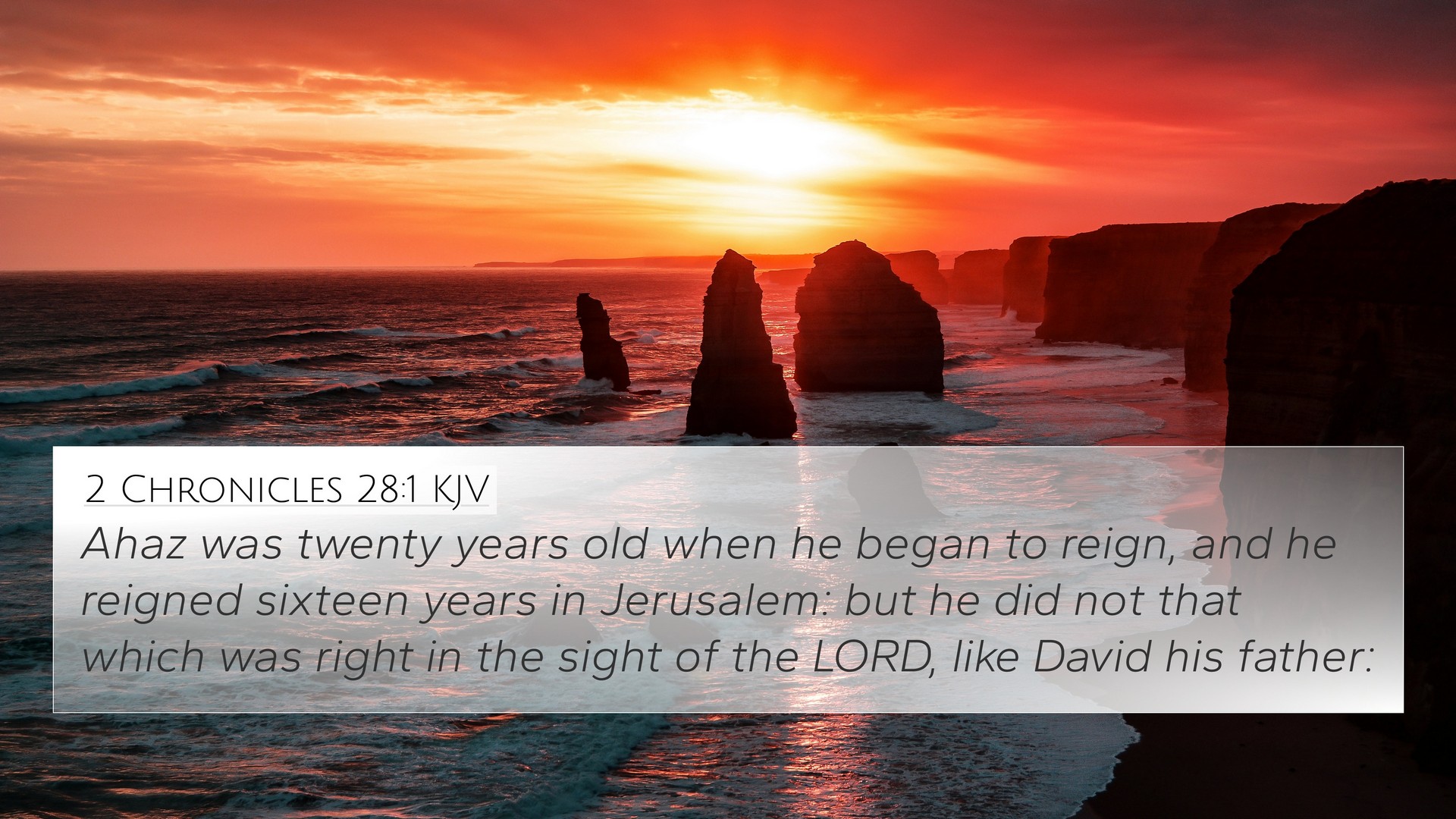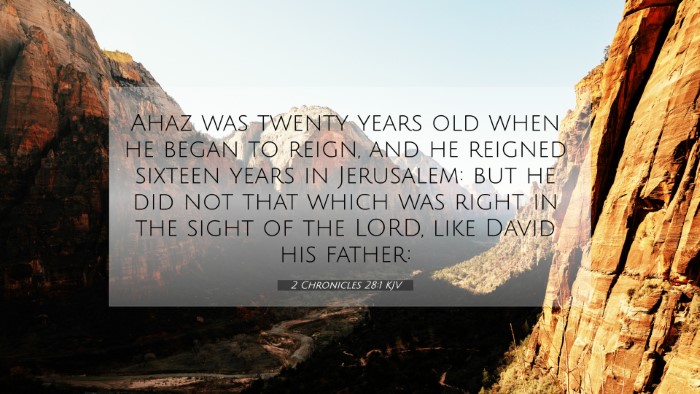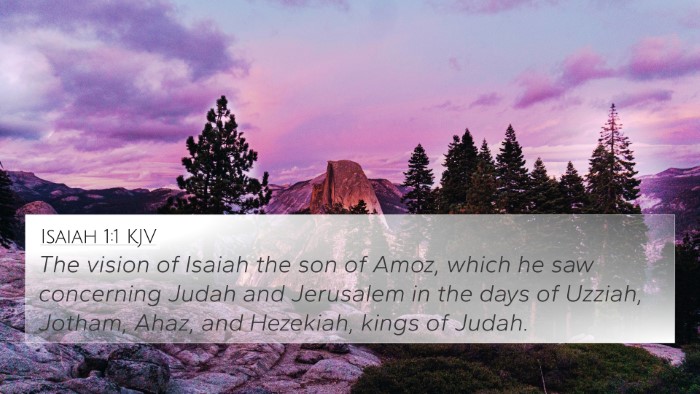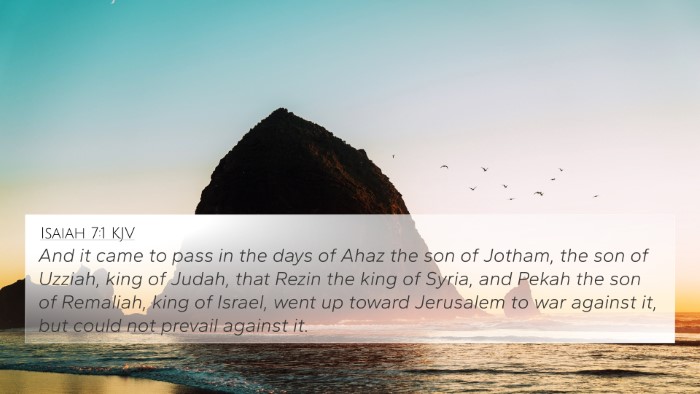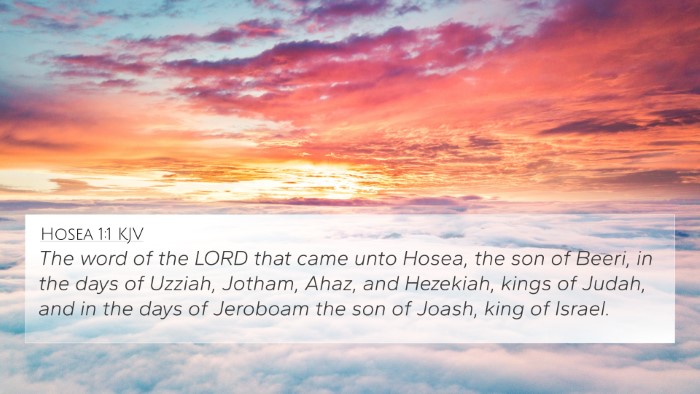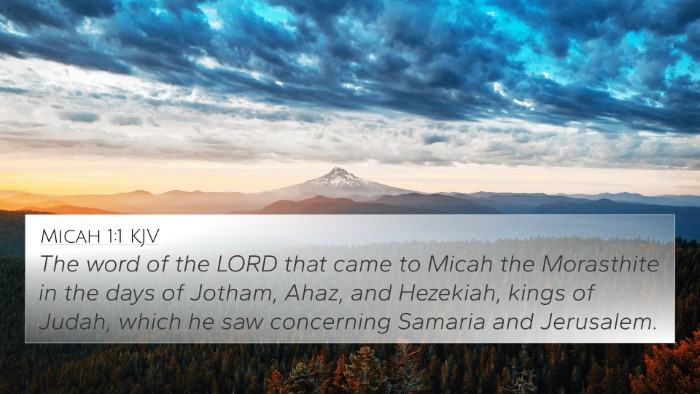Understanding 2 Chronicles 28:1
2 Chronicles 28:1 describes the reign of Ahaz, who ruled over Judah and did evil in the sight of the Lord. His actions are significant, as they reflect the broader themes of obedience and disobedience within the Biblical narrative. This verse sets the stage for a critical examination of the consequences of turning away from God's commandments.
Ahaz's Evil Reign
Ahaz began his reign at the age of twenty and ruled for sixteen years. Unlike his ancestor David, he did not walk in the ways of the Lord, which is a recurring motif in the scriptures. It highlights the concept that leadership in Israel was closely linked to spiritual faithfulness.
- Matthew Henry's Commentary: Henry emphasizes that Ahaz's reign symbolizes a departure from covenant fidelity and righteousness, suggesting that his actions not only affected his kingdom but also set a precedent for future generations.
- Albert Barnes’ Commentary: Barnes points out that the moral decay in Ahaz's reign can be traced to his alliances with foreign nations, which led him to adopt pagan practices that were an abomination to the Lord.
- Adam Clarke's Commentary: Clarke notes that Ahaz’s evil ways included idol worship and sacrificing his own children, further underscoring his abandonment of God's law.
Spiritual Implications
The actions of Ahaz are not merely historical; they serve as lessons for contemporary readers. The principle of leading by example is critical, as those in positions of authority influence the spiritual health of the communities they govern. Ahaz’s choices demonstrate the dire consequences of ignoring divine guidance.
Bible Cross-References
This verse connects with various other scripture passages that address leadership, idolatry, and the faithfulness of God’s people:
- 1 Kings 15:24 - Describes the reign of Abijam, linking the faithfulness of David with the actions of his descendants.
- 2 Kings 16:2-4 - Provides further insight into Ahaz's reign, elaborating on his disobedience and idolatrous practices.
- Isaiah 7:1-2 - Situates Ahaz in a historical context that highlights the challenges he faced and his lack of faith.
- Jeremiah 7:31 - Reflects on the sinister practices of child sacrifice, pointing to the depth of depravity introduced during Ahaz's rule.
- 2 Chronicles 29:6 - Offers a contrast with later reforms made under King Hezekiah, proving the cycle of disobedience and repentance.
- Proverbs 14:34 - "Righteousness exalts a nation, but sin is a reproach to any people," relates to the broader consequences of Ahaz's actions.
- 2 Thessalonians 2:3 - While New Testament in origin, this verse reflects the idea of lawlessness and its place in history, resonating with Ahaz's actions.
Conclusion
2 Chronicles 28:1 serves as a potent reminder of the legacy of leadership and covenant faithfulness. As believers, understanding these connections between Bible verses enriches our comprehension of scriptural truths and encourages us to seek alignment with God's will. Utilizing tools like a Bible concordance or cross-reference guide can drastically improve our ability to trace these thematic connections through the Biblical text.
How to Use Bible Cross-References
- Identify key themes in specific verses.
- Look for connections between Old and New Testament teachings.
- Utilize a comprehensive Bible cross-reference material for deeper studies.
- Engage in cross-reference Bible study methods for systematic exploration.
By linking Bible scriptures and exploring their inter-Biblical dialogues, we gain a richer understanding of God's message and the importance of obedience in our lives. Engaging with the text through comparative Bible verse analysis not only enhances our knowledge but also encourages us to reflect on our personal faith journeys.
